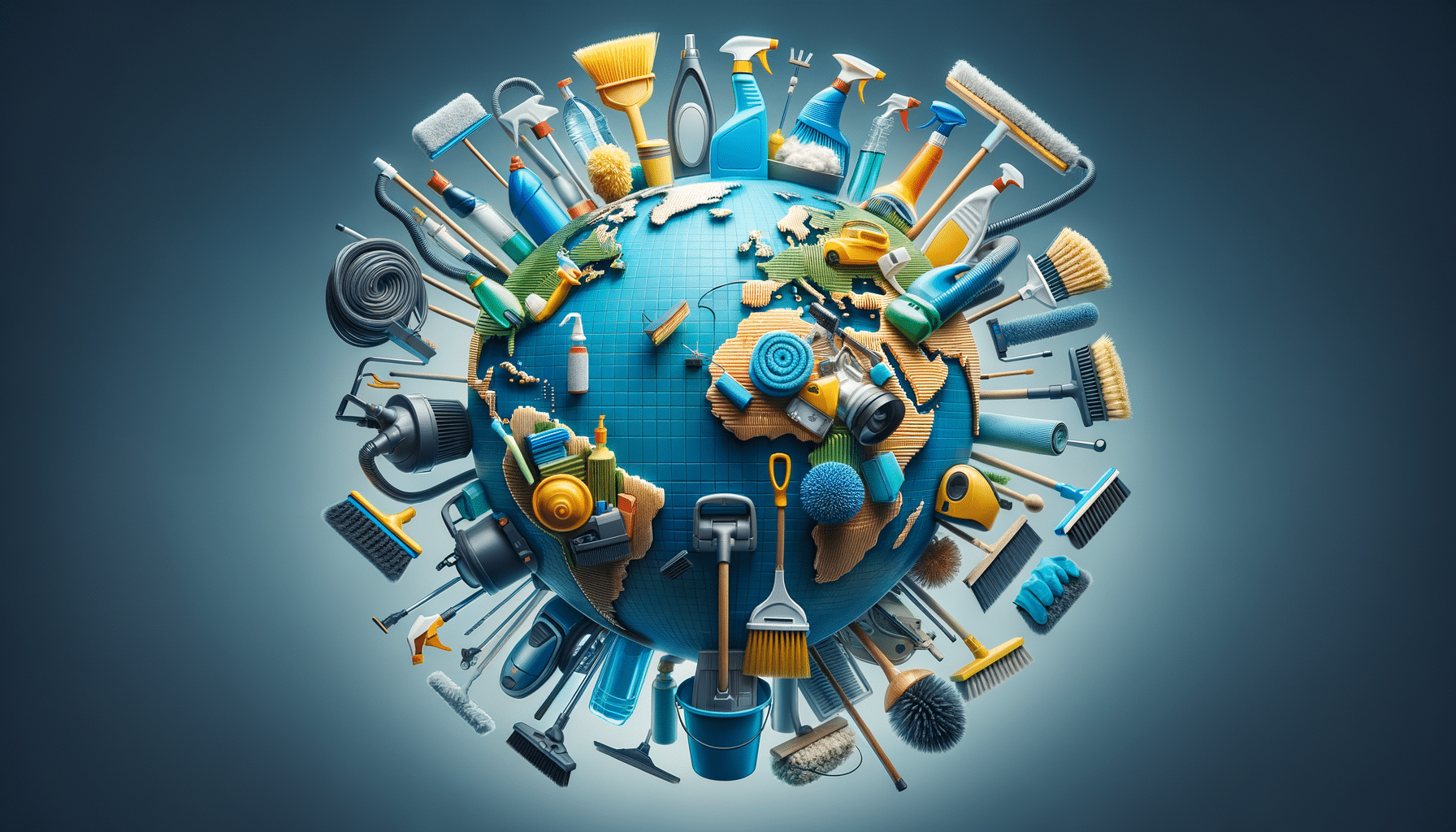Navigating the World of Cleaning Jobs: Opportunities and Insights
Cleaning jobs offer a diverse range of opportunities and are essential to maintaining healthy and inviting environments.

Understanding the Scope of Cleaning Jobs
Cleaning jobs encompass a wide array of roles, each with its own set of responsibilities and environments. From residential cleaning services to commercial and industrial cleaning, the scope is vast. Residential cleaning typically involves tasks such as dusting, vacuuming, and sanitizing living spaces. On the other hand, commercial cleaning might include maintaining office spaces, retail environments, or healthcare facilities. Each setting demands specific skills and knowledge, such as handling specialized cleaning equipment or adhering to health and safety regulations.
Industrial cleaning jobs, for example, require familiarity with heavy machinery and often involve working in challenging environments like factories or warehouses. These roles are crucial for ensuring that production areas remain safe and operational. Additionally, specialized cleaning jobs, like those in hospitals, demand a higher level of expertise due to the need for strict hygiene standards to prevent the spread of infections.
Overall, the cleaning industry is a significant part of the economy, offering numerous employment opportunities. According to industry reports, the cleaning sector is projected to grow steadily, driven by the increasing demand for cleaning services across various sectors. This growth indicates a stable job market for individuals seeking employment in this field.
Skills and Qualifications for Cleaning Jobs
While many cleaning jobs do not require formal education, certain skills and qualifications can enhance employability and career advancement. Key skills include attention to detail, time management, and the ability to work independently. Physical stamina is also essential, as cleaning jobs often involve long hours of standing, lifting, and repetitive motions.
For those interested in advancing within the field, obtaining certifications in specialized areas can be beneficial. For instance, certifications in hazardous waste management or infection control can open doors to higher-paying positions in industrial or healthcare settings. Additionally, familiarity with eco-friendly cleaning products and practices is becoming increasingly valued as businesses and consumers become more environmentally conscious.
Employers often look for candidates who demonstrate reliability and a strong work ethic. Effective communication skills are also important, especially for roles that involve interacting with clients or coordinating with team members. By developing these skills, individuals can enhance their job prospects and potentially transition into supervisory or managerial roles within the cleaning industry.
The Benefits and Challenges of Cleaning Jobs
Cleaning jobs offer several benefits, including flexible working hours and the opportunity to work independently. Many positions allow employees to choose shifts that fit their schedules, making it an attractive option for individuals seeking work-life balance. Additionally, the demand for cleaning services ensures a level of job security not always found in other industries.
However, there are also challenges associated with cleaning jobs. The physical demands can be taxing, and the work environment may sometimes be less than ideal. Exposure to cleaning chemicals and potentially hazardous materials requires adherence to safety protocols to prevent health issues. Moreover, the perception of cleaning jobs as low-skilled labor can affect workers’ morale and job satisfaction.
Despite these challenges, many individuals find fulfillment in knowing that their work contributes to creating clean, safe, and welcoming environments. The sense of accomplishment after transforming a space and the gratitude from satisfied clients can be rewarding aspects of the job.
Exploring Career Advancement in Cleaning Jobs
Career advancement in the cleaning industry is possible for those willing to develop their skills and take on additional responsibilities. Starting as an entry-level cleaner, individuals can progress to supervisory or managerial roles by demonstrating leadership abilities and a strong work ethic.
Some companies offer training programs that provide employees with the skills needed to move up the career ladder. These programs may cover topics such as team management, advanced cleaning techniques, and customer service. Additionally, networking within the industry and joining professional organizations can provide opportunities for career growth and development.
For those with entrepreneurial aspirations, starting a cleaning business is another avenue for advancement. With a solid understanding of the industry and a commitment to providing quality service, individuals can establish successful cleaning companies that cater to residential, commercial, or specialized markets.
The Future of Cleaning Jobs
The future of cleaning jobs is shaped by technological advancements and changing consumer preferences. Automation and robotics are gradually being integrated into the cleaning process, enhancing efficiency and reducing the physical strain on workers. However, the human touch remains irreplaceable, especially in settings that require personalized service and attention to detail.
As sustainability becomes a priority, the demand for eco-friendly cleaning solutions is expected to rise. This shift presents opportunities for workers to specialize in green cleaning practices, catering to environmentally conscious clients. Additionally, the ongoing emphasis on health and hygiene in public spaces will continue to drive the need for skilled cleaning professionals.
Overall, the cleaning industry is poised for growth, offering a range of opportunities for those interested in joining or advancing within the field. By staying informed about industry trends and continuously enhancing their skills, individuals can secure a rewarding career in the ever-evolving world of cleaning jobs.